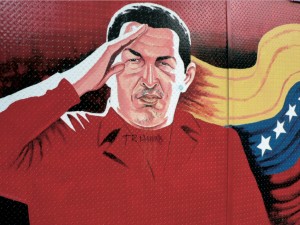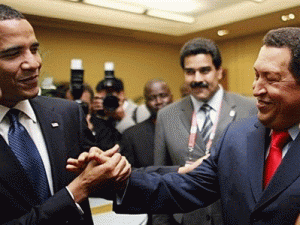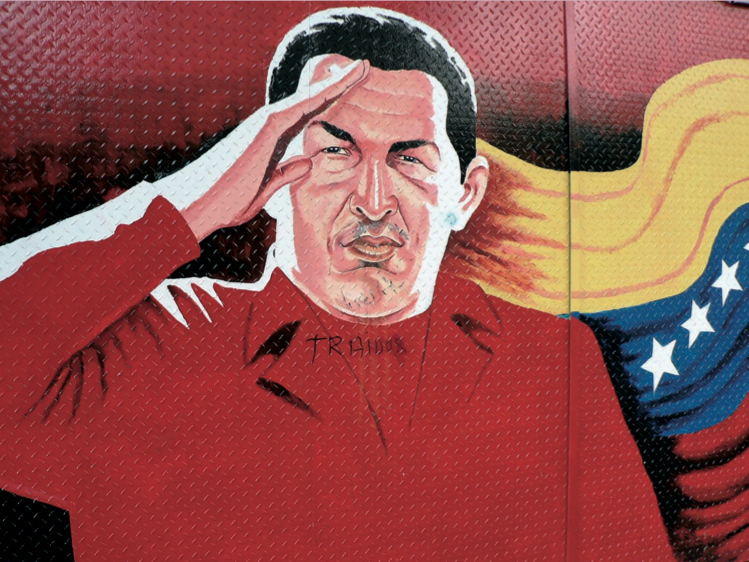The late Venezuelan President Hugo Chavez was an inveterate U.S. foreign policy antagonist. He was a true master in this art. Ahmadinejad’s amateurish taunting is bush league in comparison. It is undeniable that over a decade in power, Chavez was continually on the cusp of new and exciting ways (though often ideologically contradictory ways) to denounce the U.S.A’s behavior abroad and domestically.
This criticism was not helping Chavez make any american political friends. Beyond the original Devil-in-Chief, who certainly didn’t appreciate the title, and his predecessor the DIC II, the legion of American politicians with rancor towards Chavez is immense. It is also strikingly bipartisan.
Why is it that Chavez should find such little reception in U.S. politics? Far from there being an obvious response, this question is fascinating and rich. My suspicion is that the answer deals at least in part with the reflexive aversion of the north American left political ethos to south American left ideologies and rhetorics. This is admittedly a very general whim and I would love for somebody here at BPR to take this up more seriously in the future.
There is no doubt that Chavez’ opposition as had real a impact. Chavez’ geopolitical and intellectual legacy isn’t merely made up by the rhetorical reheating of idea out of stale literature skimmed from the bottom of the more truculent Dependency Theory barrel. Of course its is true that Chavez’ first gesture towards Obama was an unrequited invitation to a two man book club to begin with Eduardo Galeano’s Open Veins of Latin America, a classic text for the intellectual home of Chavez. Instead of being a reproduction of these ideas, Chavez’ affiliations and maneuverings systematically acted upon his American antipathy.
Perhaps a good place to start to understand Chavez’ consistently anti-american international affairs is to look at the Venezuelan state oil international gift list. Chavez, far behind his rhetoric, developed a politik that systematically buried ideological difference on domestic themes to create a coalition of countries opposed to U.S. power. Looking at Chavez’ relationship with Ahmadinejad provides a fascinating instance of this conceptual dissonance. The ideologies and political rhetorics each uses are unequivocally opposed. Nonetheless, Chavez’ staunch anti-USA streak allowed him to stomach this dissonance. What is ideology if it keeps us from making new friends, right?
Anyway, the main thing I want to mention with this post is the note released by the Obama Administration (it hardly seems fair to say that Obama actually said it) concerning the death of Hugo Chavez on Tuesday.
“As Venezuela begins a new chapter in its history, the United States remains committed to policies that promote democratic principles, the rule of law, and respect for human rights.”
I have two immediate reactions to how to understand this statement. The first wants to know why these particular principles have been selected by Obama as representing the three crucial values for other states. This is a political theory response.
The second reaction is the being taken aback as to how implicitly critical this expression is. There is no word of condolence to be found. In fact there is no direct mention of a man named Chavez at all. 
Maybe it’s just a guilty desire, but I would have liked for Obama to have released a real statement on Chavez outside of this stylistic confine. Why should Hugo get all the good lines?
Dam the man to hell if you are the Devil!
